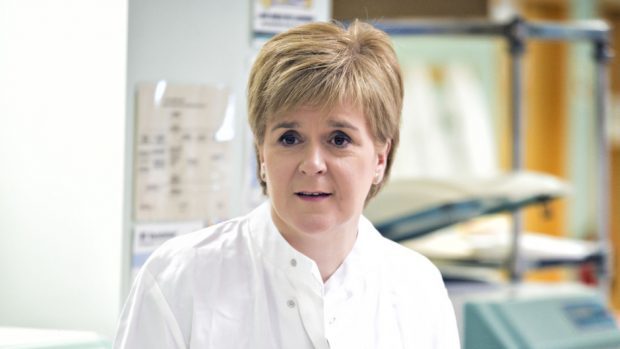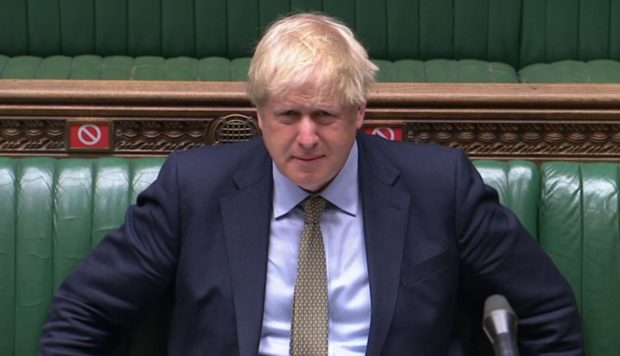A radical proposal to give Nicola Sturgeon a place at the top table of British politics has been rejected by Boris Johnson, senior Scottish Tories and constitutional experts.
Under the plan – floated privately by Michael Gove – the first minister, alongside her Welsh and Northern Irish counterparts, would have been invited to take part in and shape policy at UK Cabinet meetings.
Mr Gove reportedly argued the proposal would demonstrate that Holyrood was being listened to at Westminster and stem support for independence.
Mr Johnson is reported to have ruled it out as “he doesn’t like the idea of Sturgeon being seen as on the same political level as him”.
One senior Scottish Tory source agreed with the prime minister’s assessment, telling us: “I would worry about a party who are wanting to break up the UK being too involved.”
They added: “Sturgeon likes to present herself as being on a level pegging with the prime minister of the United Kingdom, but she’s not the prime minister of the United Kingdom, she’s the first minister of Scotland.”
Asked about the proposal at today’s daily briefing, the first minister said: “I don’t know whether that proposal is accurate or not.
“I think certainly there is a value to good-quality four-nation discussions, and we’ve had some of them.
“But I’m less bothered about the forum and more bothered about having discussions that are meaningful, where we genuinely listen to each other, respect each other’s views and try to come to common ways forward.”
I just don’t see how, in the real world, that ever works.”
Akash Paun
Ms Sturgeon also made clear that her government would not be bound by collective responsibility, which requires all members of Cabinet to publicly agree to the same policy, if such a proposal where to go ahead.
Akash Paun, constitutional expert at the Institute for Government think-tank, said there were “some very big questions” about how the proposal would work in practice.
He said: “I don’t see any way that Nicola Sturgeon or indeed the other devolved leaders could be part of Cabinet in a full sense as traditionally understood, which would indeed mean they would be bound by collective responsibility, meaning they would have to sign up to a policy position collectively decided and they would have to defend that line in public.
“I just don’t see how, in the real world, that ever works.
“There is some precedent for devolved ministers being invited to Cabinet committee meetings. This happened during the latter phase of Brexit, to some extent under Boris Johnson, but in particular under Theresa May.
“But that is rather different to the functioning of the Cabinet of the UK Government.”
The Cabinet Manual itself, which sets out the main rules for the conduct of government, makes clear what Westminster’s relationship with the devolved administrations should look like.
The manual specifically states that devolved governments are “separate administrations and not subject to the collective responsibility” and as such “consideration should be given to writing separately where they have an interest”.
It adds that in some “exceptional” circumstances “ministers from the devolved administrations may be invited to attend meetings”.
There are other forums in which ministers from the UK and devolved governments can meet, but as we have previously reported they have been widely criticised.

